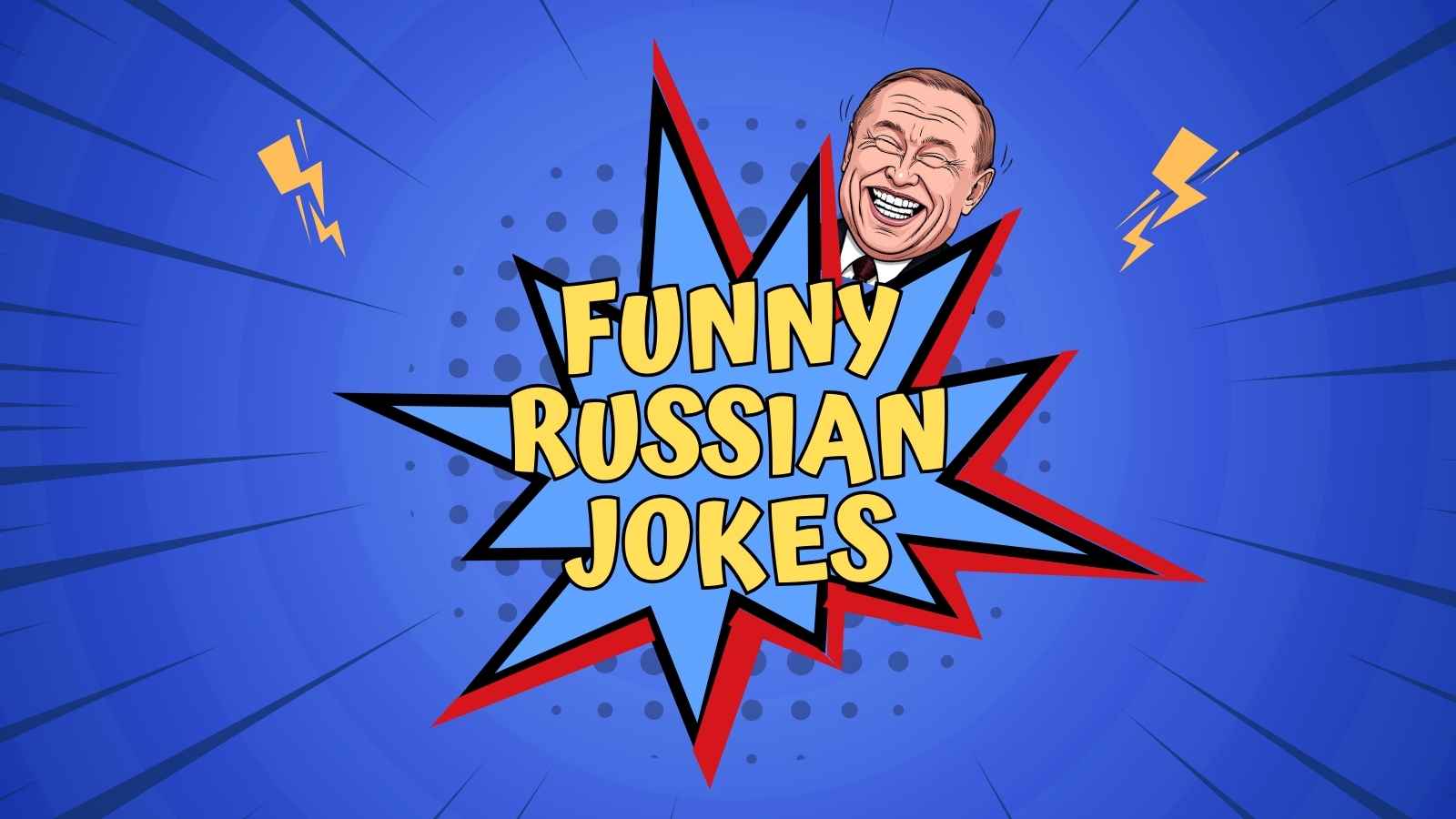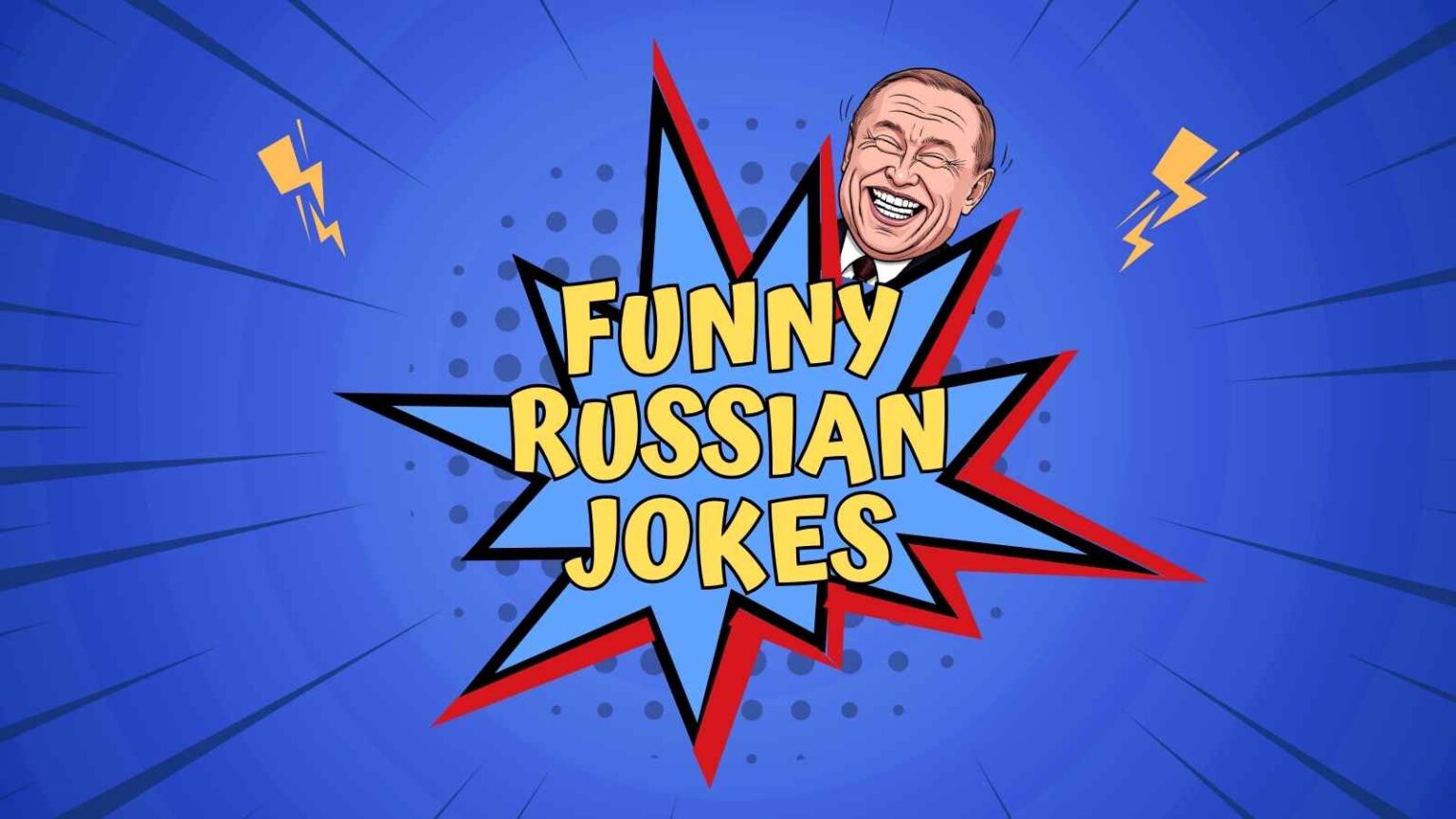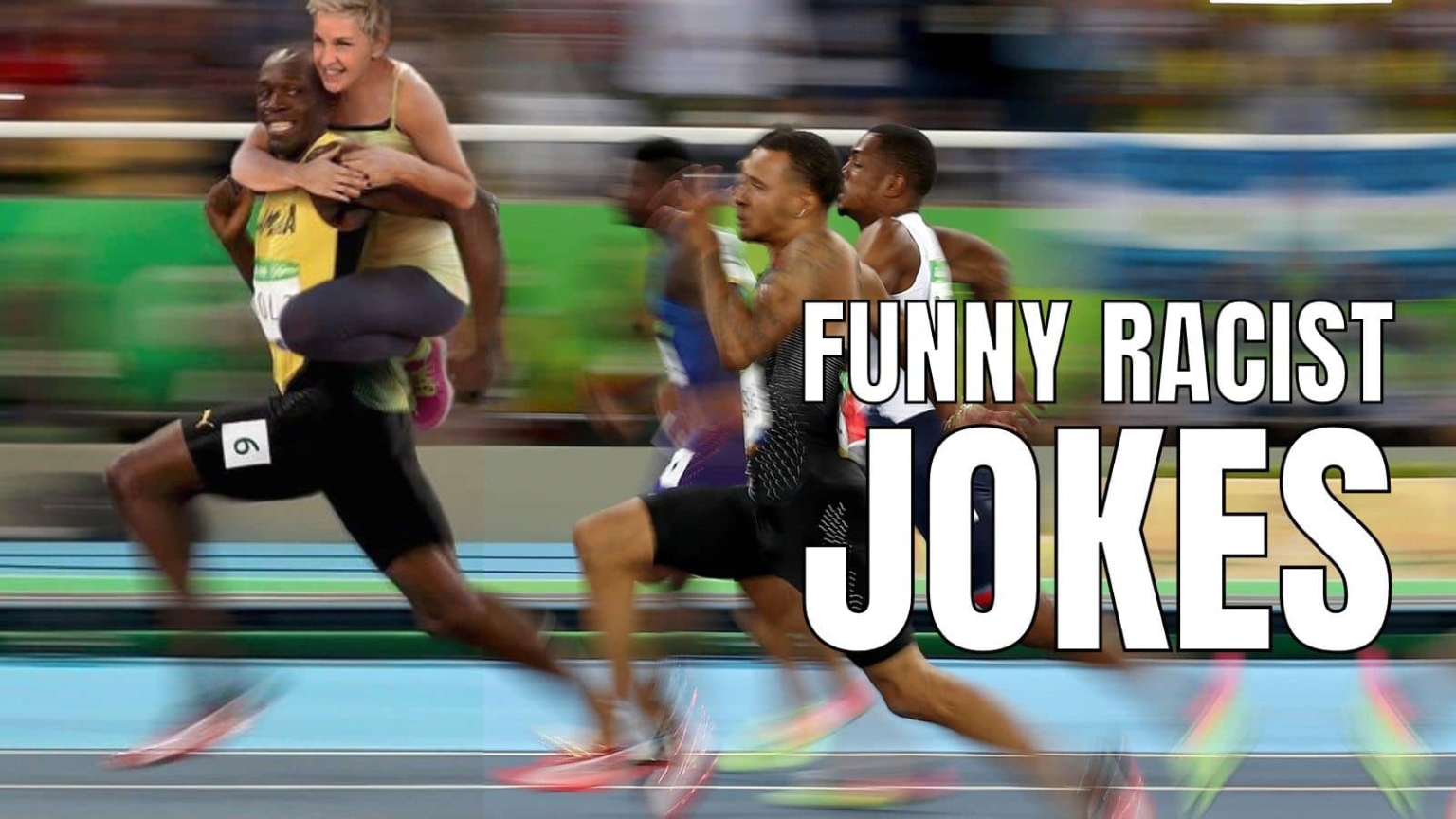Talking about jokes that target groups of people can feel a bit uncomfortable, can't it? It's a topic that, you know, often makes people quite defensive, and that's understandable. Yet, it's something we really need to look at, especially when we talk about racist Russian jokes. These kinds of jokes, or any joke really that makes fun of someone's background, can carry a hidden weight.
You see, humor has a strange way of working. It can bring people together, or it can, in some respects, push them apart. When jokes lean on old, harmful ideas about a group of people, they can leave a mark. This isn't just about a quick laugh; it's about what those laughs might mean for people who hear them, or for the people those jokes are about.
So, we're going to spend some time exploring these kinds of jokes. We'll look at where they might come from, what they actually do to people, and, you know, what we can perhaps do about them. It's about getting a better grasp on why these jokes matter, and why we should think about the words we use, even when we're just trying to be funny.
Table of Contents
- The Uncomfortable Truth About Racist Russian Jokes
- Why Do These Jokes Exist?
- The Real-World Impact of Harmful Humor
- Addressing Racist Jokes: What Can We Do?
- Frequently Asked Questions About Racist Jokes
The Uncomfortable Truth About Racist Russian Jokes
It's fair to say, racist Russian jokes are a real thing, and they, you know, show up in different places. These jokes often rely on making fun of people based on where they come from, or their background. It’s not just about Russia, of course; many groups get targeted by such humor. But focusing on this specific type helps us see the patterns.
When someone tells a joke like this, it can feel like a small thing. Yet, it really isn't. It can chip away at how people see each other, making old, unfair ideas seem okay. That, you know, is the core problem. Humor, in this way, becomes a tool for something that isn't very funny at all.
What Makes a Joke Racist?
A joke crosses a line into being racist when it picks on a person's heritage, skin color, or national origin. It uses broad, unfair ideas about a whole group of people. This isn't about one person's quirks; it's about putting a whole group down. So, it's almost always about power, or a lack of it, and who gets to laugh at whom.
Think about it: a joke might suggest that everyone from a certain country acts a particular way, or that they all have certain traits. These traits are, you know, usually negative ones. This kind of humor, you know, strips away a person's individuality. It reduces them to a simple, often silly, idea, and that is a problem.
It’s important to remember that intent isn't the only thing that matters. Even if someone doesn't mean to cause harm, the joke itself can still do it. The way people hear it, and how it lands, is what truly counts. That, in a way, is why these conversations are so important.
A Look at Common Themes
When you hear racist jokes about Russian people, you often find some common ideas popping up. These ideas are usually based on old, outdated ways of thinking. They might play on ideas about a country's past politics, or maybe its economic situation. You know, these themes are often quite broad and not very kind.
For example, some jokes might focus on ideas about, you know, coldness or a lack of emotion. Others might suggest a certain way of speaking, or even a particular love for certain drinks. These are, in a way, just simple ideas that don't really tell you anything about real people. They are, quite frankly, just ideas that get passed around.
These themes, you know, are not harmless. They can make people from Russia feel like they are seen only through these narrow, silly ideas. It takes away from who they really are, and what their culture truly means. It's a bit like painting everyone with the same brush, which, you know, is never a good idea.
Why Do These Jokes Exist?
It's a fair question, really: why do these jokes even pop up? There isn't just one simple answer, of course. It's a mix of different things, from history to how people interact with each other. Understanding this can help us, you know, see the bigger picture.
Sometimes, these jokes come from a place of not knowing much about others. People might just repeat things they've heard, without really thinking about what those words mean. So, it's almost like a chain reaction, where old ideas just keep getting passed along, you know, without much thought.
Historical Context and Stereotypes
History plays a big part in how groups of people are seen. Think about past political events, or perhaps, long-standing rivalries between countries. These things can, in a way, create certain ideas about people from those places. These ideas then, you know, get stuck in people's minds.
For example, during certain times, there were, you know, strong feelings between different nations. These feelings often led to simple, often unfair, ideas about the people on the "other side." These simple ideas, or stereotypes, then find their way into jokes. They become a quick way to, you know, make fun of a whole group.
It's important to remember that these stereotypes are not true reflections of people. They are just, you know, ideas that grew out of specific times and situations. Yet, they stick around, and jokes help them stay alive. That, you know, is a bit of a problem, really.
The Role of Social Dynamics
How people act in groups also has a lot to do with these jokes. Sometimes, people tell these jokes to fit in with a certain crowd. Or maybe, they do it to feel better about themselves by, you know, putting someone else down. It's a strange sort of group behavior.
There's also the idea of power. Jokes can be a way for one group to show its power over another, or at least, to feel like it has power. When a group is often the target of jokes, it can feel, you know, like they are always on the outside. This isn't a very nice feeling at all.
People might also just not realize the harm they are causing. They might think it's just a joke, just a bit of fun. But, you know, it's more than that. The way we talk about others, even in jest, shapes how we, and others, see them. This is, you know, a very important point.
The Real-World Impact of Harmful Humor
It's easy to dismiss a joke as "just words," but words, you know, have power. Especially when those words are part of something that keeps harmful ideas going. The impact of racist jokes goes beyond a quick laugh; it touches real people and real communities.
Think about it: if you hear the same kind of joke about your background again and again, it starts to wear on you. It can make you feel like you don't quite belong, or that you're always being judged. That, you know, is a heavy burden to carry, honestly.
Shaping Perceptions and Prejudice
Jokes, even seemingly light ones, can actually change how people think. When stereotypes are repeated in jokes, they start to seem normal. People might begin to believe these unfair ideas, even if they don't mean to. This can lead to what we call prejudice, which is just, you know, having a bad idea about someone before you even know them.
It's interesting, in a way, how certain comments or forms of humor can make people feel quite defensive. You know, like when someone talks about sensitive community issues, people often get defensive. Similarly, jokes that target a group can create an atmosphere where people feel uneasy or even, quite frankly, like a place has a certain unwelcoming feel, as if it's "kinda of a racist town," even if it's just a feeling. This is because these jokes, in some respects, can reflect or reinforce underlying biases. It's not just a joke; it's a small piece of a bigger picture that can lead to unfair treatment or, you know, just a general feeling of unease for people.
These jokes, you know, can also make it harder for people to see individuals for who they really are. Instead, they see the stereotype. This can affect everything from how people are treated at work to how they are seen in their neighborhoods. It's a big deal, really, and not just a small chuckle.
Creating Unsafe Spaces
When racist jokes are told often, they can make certain places feel unsafe for people from the targeted group. A classroom, a workplace, or even a family gathering can become a place where someone feels they don't truly belong. This, you know, is a very real consequence.
Imagine being in a room where jokes about your background are being told. You might feel like you have to laugh along, even if it hurts. Or you might feel like you can't speak up, for fear of, you know, being seen as too sensitive. This creates a very uncomfortable situation for anyone.
A place where people feel they can be openly mocked for their heritage is not a truly welcoming place. It can lead to people feeling isolated, or like they have to hide parts of who they are. That, you know, is a very sad outcome for something that starts as a joke.
Addressing Racist Jokes: What Can We Do?
So, if these jokes are so harmful, what can we actually do about them? It's not always easy, of course, but there are steps we can take. Every little bit, you know, helps make a difference.
It starts with recognizing the problem. Once we see that these jokes are not just harmless fun, we can begin to think about how to respond. It's about, you know, taking a stand, even a small one.
Speaking Up and Challenging
One of the most direct things you can do is to speak up. This doesn't mean you have to be angry or confrontational. Sometimes, just a simple question can make a difference. You know, something like, "Why is that funny?" or "What do you mean by that?" can make people think.
You can also say something like, "I don't really find that joke very funny." Or, "That kind of joke makes me feel a bit uncomfortable." Being honest about your feelings can, in a way, open up a conversation. It lets the other person know that their words have an impact. Learn more about on our site, and link to this page for more ideas on how to speak up respectfully.
It takes courage, yes, but speaking up can help stop the spread of these jokes. It shows others that it's not okay, and it can encourage them to also, you know, think twice before telling or laughing at such humor. For more insights on how humor can affect society, you might look into studies on the sociology of humor, such as those discussed on academic platforms like JSTOR.
Promoting Inclusivity
Beyond reacting to jokes, we can also work to create places where such humor just doesn't fit. This means building communities where everyone feels welcome and respected. When people truly feel like they belong, there's less room for jokes that put others down.
This involves, you know, learning about different cultures and backgrounds. The more we understand about each other, the less likely we are to rely on old, unfair ideas. It's about seeing people as individuals, with their own stories and experiences, rather than just as a group.
Encouraging diverse voices and perspectives can also help. When many different kinds of people are part of a conversation, it naturally pushes out narrow ways of thinking. This, you know, creates a richer, more accepting environment for everyone.
Frequently Asked Questions About Racist Jokes
People often have questions about this topic, and that's perfectly normal. Here are a few common ones that, you know, come up quite a bit.
Are all jokes about different cultures racist?
No, not every joke about a different culture is racist. Humor can sometimes come from cultural differences, and that's okay. The key is whether the joke puts down a group, or relies on unfair ideas about them. If it targets a whole group with negative ideas, then, you know, it likely crosses the line into being racist. It's about respect, really.
What if someone says it's "just a joke" and I'm being too sensitive?
When someone says "it's just a joke," they might not understand the harm it causes. You're not being "too sensitive" for feeling hurt or uncomfortable by a joke that targets a group. It's okay to say how you feel. You know, your feelings are valid, and it's important to remember that. It's about how the joke lands, not just how it's meant.
How can I tell if a joke is racist or just playful?
A good way to tell is to think about who the joke is aimed at, and what idea it's trying to push. Does it make fun of someone's background in a way that suggests they are less smart, or, you know, less capable? Does it rely on old, unfair ideas about a whole group? If it feels like it's putting a group down, or making them seem silly just because of who they are, then it's likely not just playful. It's about whether it truly respects everyone, you know.



Detail Author:
- Name : Alvera Botsford
- Username : lesch.katlynn
- Email : sbailey@larkin.com
- Birthdate : 1982-10-02
- Address : 7830 Renner Valleys Suite 835 East Georgechester, HI 85027
- Phone : 551.687.7344
- Company : Rohan-Towne
- Job : Machine Feeder
- Bio : Quo voluptatem qui doloremque est laboriosam. Quod necessitatibus sint voluptatibus. Excepturi impedit recusandae dolorem quae eveniet ea.
Socials
twitter:
- url : https://twitter.com/francisca.hauck
- username : francisca.hauck
- bio : In sit sequi quisquam sint iste iure rerum quaerat. Necessitatibus nulla et voluptas sequi error tempora magni. Rerum sed ipsa non odio fuga.
- followers : 2464
- following : 373
facebook:
- url : https://facebook.com/francisca_hauck
- username : francisca_hauck
- bio : Quia qui asperiores natus. Qui maxime deleniti aut et asperiores eum.
- followers : 6220
- following : 2172
linkedin:
- url : https://linkedin.com/in/fhauck
- username : fhauck
- bio : Cupiditate cupiditate sunt tenetur minima ipsam.
- followers : 1930
- following : 2492
tiktok:
- url : https://tiktok.com/@francisca3536
- username : francisca3536
- bio : Ea accusantium maiores dolorem et.
- followers : 4247
- following : 1658

